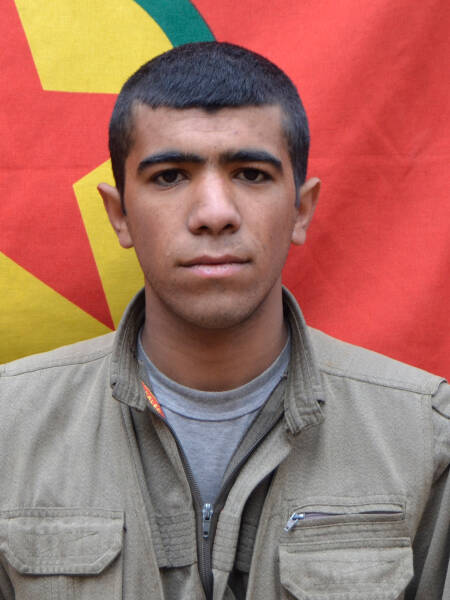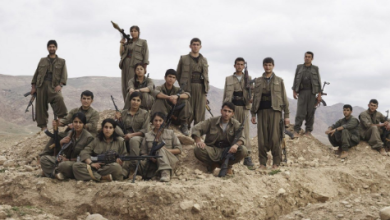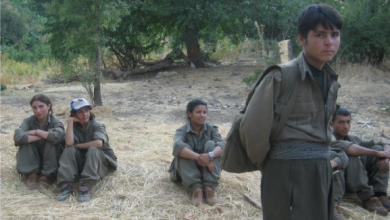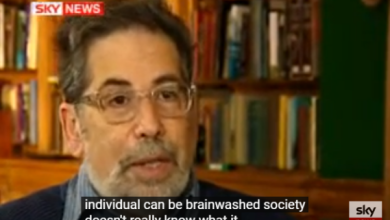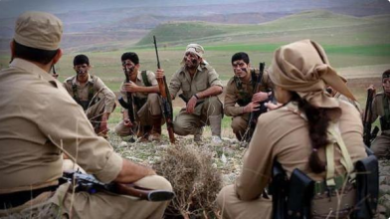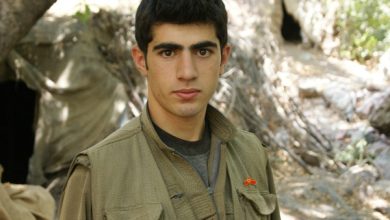Following the ongoing talks with the families of the victims of the PKK / PJAK crimes, Iranian Kurdistan Human Rights Watch has arranged a conversation with “Abdullah Ismaili’s mother”, the family member of another victim that was recruited when still a minor.
One of the consistent approaches of militant groups such as the PKK / PJAK is that after one or more years of the children being killed, they inform the families that their children have been killed and in most cases do not report their burial place.
According to most families, PJAK has often pressured them NOT to talk to the media about their children, so that they can continue to “violate the rights of Kurdish citizens” in the shadow of media silence.
Another point to consider is that the approach of militant groups such as PJAK in the use of children in war is contrary to their commitment under the Geneva Convention not to use children under the age of 18.
Perhaps the deception and abduction of Kurdish teenagers, youth and, of course, children, and then arming and using them for the purposes and interests of the leaders of militant groups such as PJAK and the PKK, is the only achievement and gift of those claiming to defend the rights of the Kurdish people.
In fact, this is a human rights violation that these groups are constantly insisting on.
For years, the poverty and unemployment of the youth of the west of the country have caused them to do anything to get rid of this situation, such as working as cross-border smugglers called ‘kolbers’, a gravely dangerous occupation, or fleeing the country altogether through militant groups active in the border region.
Unfortunately, the biggest damage done to these young people is the Kurdish armed groups such as the PKK, whose members lead the youth with false promises to recruit them.
Among them, “Abdullah Ismaili” is another Kurdish child who is a victim of the “soldier child” phenomenon.
When I entered the village where Ismaili was born, I felt awful. There were 12 families in a remote border village in Sardasht. The people there mostly did the work of Kolberi and bringing cargo by mule across the border to the borders of Iran, even in the most dangerous conditions possible.
Landmines left over from the Iran-Iraq war and the border war, and on the other hand, members of PJAK who are being extorted from them as customs.
I also talked to his mother and asked about her son’s condition, and from the very beginning, their clay-build house and their poor economic situation were visible.
The full text of the conversation with Abdullah Ismaili’s mother is as follows:
Abdullah was your second child, how was he recruited by this group?
The mother began to cry, and answered: “His father had died of heart disease and Abdullah was an orphan. I raised him with a thousand efforts. He went to school. He was my secondborn child and he has a younger sister. When he studied, his older brother got married and separated from us. The situation was difficult at that time.
Ismail worked at the border, and PJAK members sometimes came to our house and village. Fearing that they would harm us, we gave them bread and food so that they could leave sooner and not see our children.
But in the end they deceive Abdullah, and one day Ishmael said he would be late today..
I doubted, I asked him why and he only said he will come later. He did not return that night and I realized that PJAK had taken him.
At my age and in my circumstances, I went to them at the border. I was lied to by an older woman from the group, my child was stolen, I had no breadwinner, now there was no one to help me.

You went to Kandil after that.
Yes, my little girl and I even had to sell a few sheep that were considered our possessions in order to follow Abdullah. I did not understand anything and I came across a girl named Zilan who was said to be one of the leaders of PJAK, and I did not understand anything from her Kurdish dialect.
But in general, I felt that the commanders there did not even have a family and no parents, because my feelings could not be understood by them.
They lied, saying ‘your son did not come here’, I insisted and then they said he is in training and far away, they told me to go and come again. How could I go again!
I had no one and it was not possible, my son was the breadwinner of the house. I insisted and said that it would take me only a minute to see him, but their hearts are made of stone. If Abdullah were a prisoner, he would have been allowed to see me, but these monsters wouldn’t let me see my child.
After my insistence, they said, “Who told you that Ismail is here? Do not let Iran send you here for information!” I mean, that was an open accusation.
I am sure that they did not come to serve the Kurds.
Did you hear from Abdullah after this visit?
The mother continued to cry and answered, “Yes, we received the news of his death somewhere near Turkey. Finally, what do we do with Turkey and Iran? They killed my son, they are lying, I saw his picture on TV. How old was he and when was he killed? He was not yet 15 years old, but his problems were as old as mine.”
“He felt responsible, he loved his sister and me very much, and he did not know that such a fate awaited him. He was killed at the age of 17, almost 18, and was still a child. Now I work alone and even take my daughter with me to my job, so that she will not be stolen and deceived. Where is this place called Avashin, where my son was sent to death? I had not even heard of the name before, later I understood it was a mountain place near Duhok.”
Did you see Ishmael’s body?
The mother cried and said, “No, and that is why I believe they are still lying to me.”

